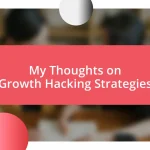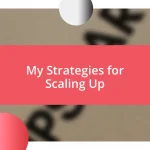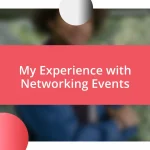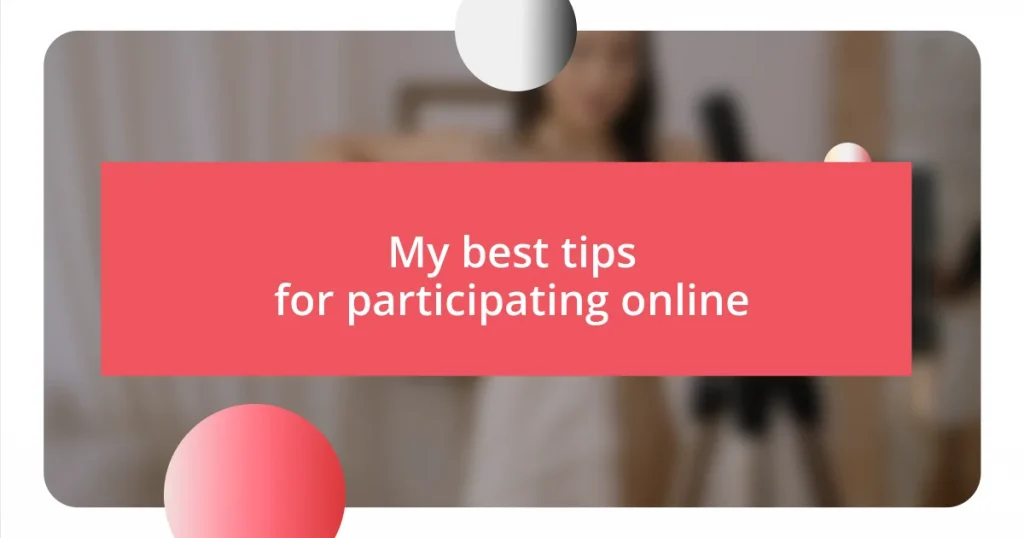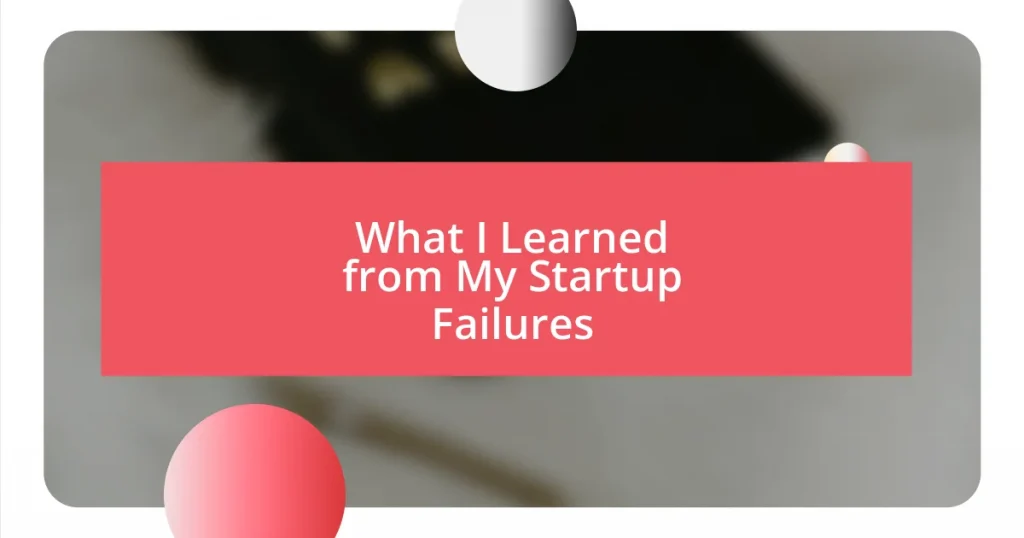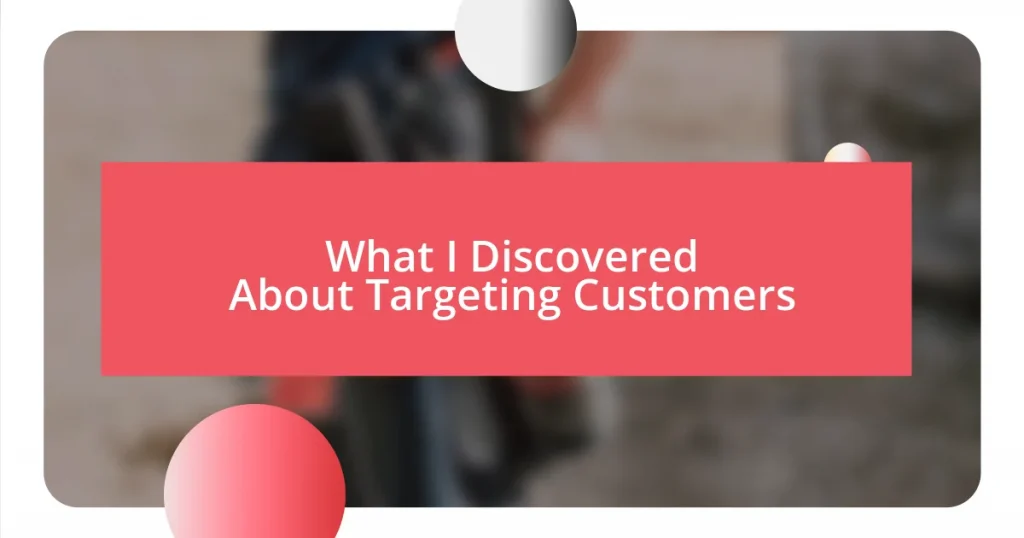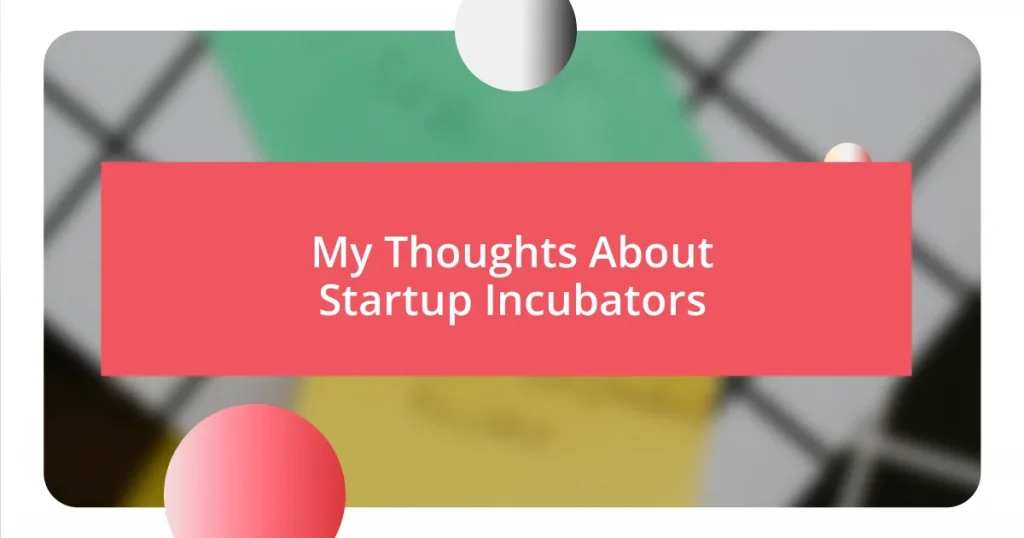Key takeaways:
- Online participation fosters personal growth, community connections, and enhances mental well-being through sharing diverse perspectives.
- Choosing the right platform and creating a personal engagement strategy leads to more meaningful interactions and effective contributions.
- Measuring participation impact through feedback and reflection helps refine strategies for better engagement and strengthens online relationships.
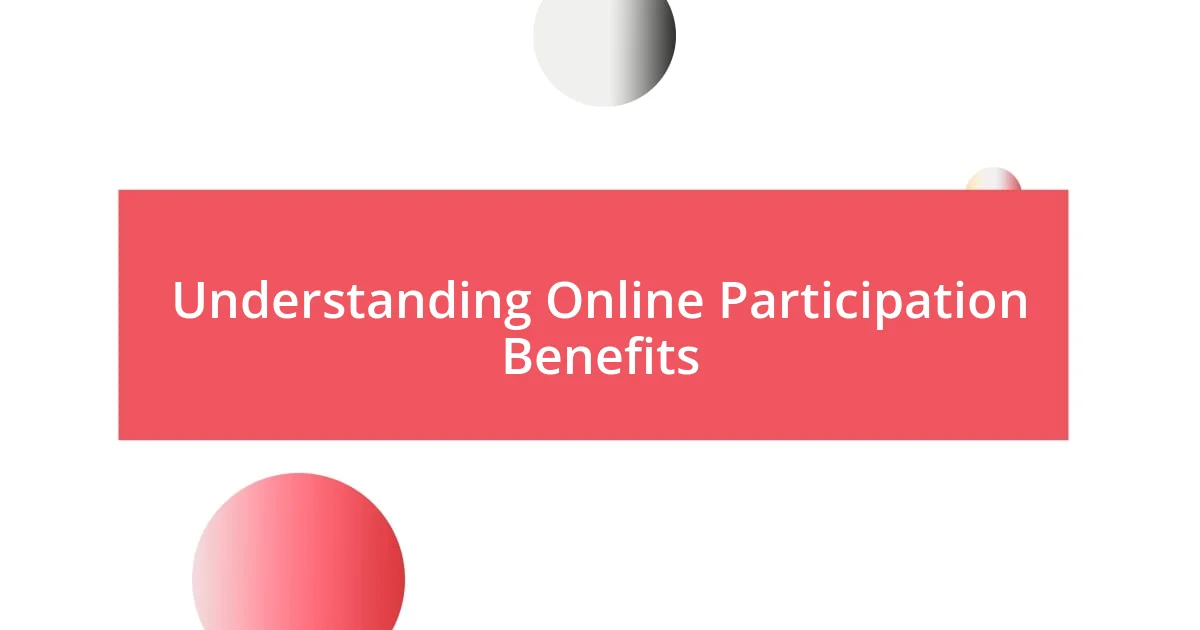
Understanding Online Participation Benefits
Participating online opens a treasure chest of opportunities that can enrich our daily lives. I remember my first online workshop; I felt hesitant at first, but once I joined, I was amazed at how many perspectives I gained from people across the globe. Isn’t it incredible how technology allows us to share ideas with someone halfway around the world from our living room?
Engaging in online platforms also nurtures a sense of community. When I participated in a virtual book club, I found bonds forming with people I had never met in person. Have you ever felt that excitement when a stranger shares a thought that resonates with your own experiences? It makes me think about how these connections, formed through shared passions, can truly uplift our mental well-being.
Moreover, online participation cultivates personal growth. Each interaction challenges me to articulate my thoughts more clearly and listen empathetically to others. It’s transforming—not just in terms of professional skills but also in building confidence. Have you considered how stepping outside your comfort zone could lead to unexpected growth? To me, that’s one of the most gratifying benefits of engaging online.
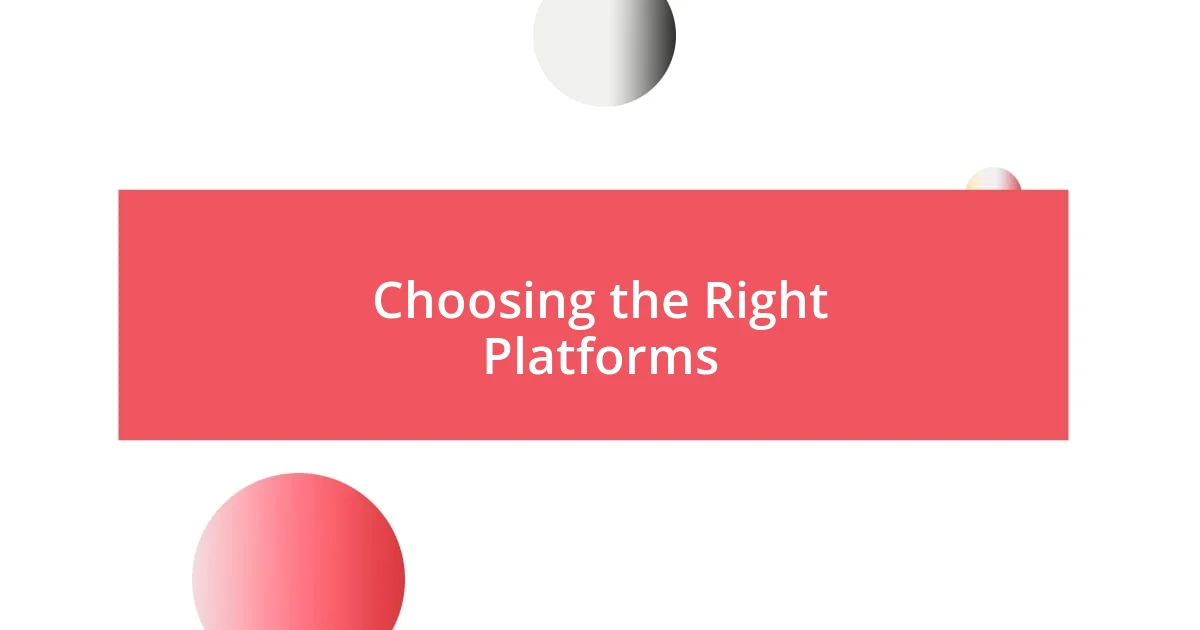
Choosing the Right Platforms
Choosing the right platform can significantly enhance your online participation experience. I still vividly remember the confusion I felt when attempting to navigate five different group chats for a project. Eventually, I found a platform that suited my style, one that helped me communicate effectively and connect with others without the headache. This made all the difference, as settling into a user-friendly space allowed me to focus on what truly matters: contributing and learning.
Consider these essential factors when selecting your platform:
- Usability: Is the interface intuitive and easy to navigate?
- Audience: Are the people you want to connect with already active there?
- Features: Does the platform offer functionalities like video calls, interactive chats, or forums that align with your needs?
- Accessibility: Can you easily access it from various devices?
- Privacy and security: Does it offer the protections you need to feel safe engaging?
Taking the time to choose wisely can lead to a more fulfilling experience.
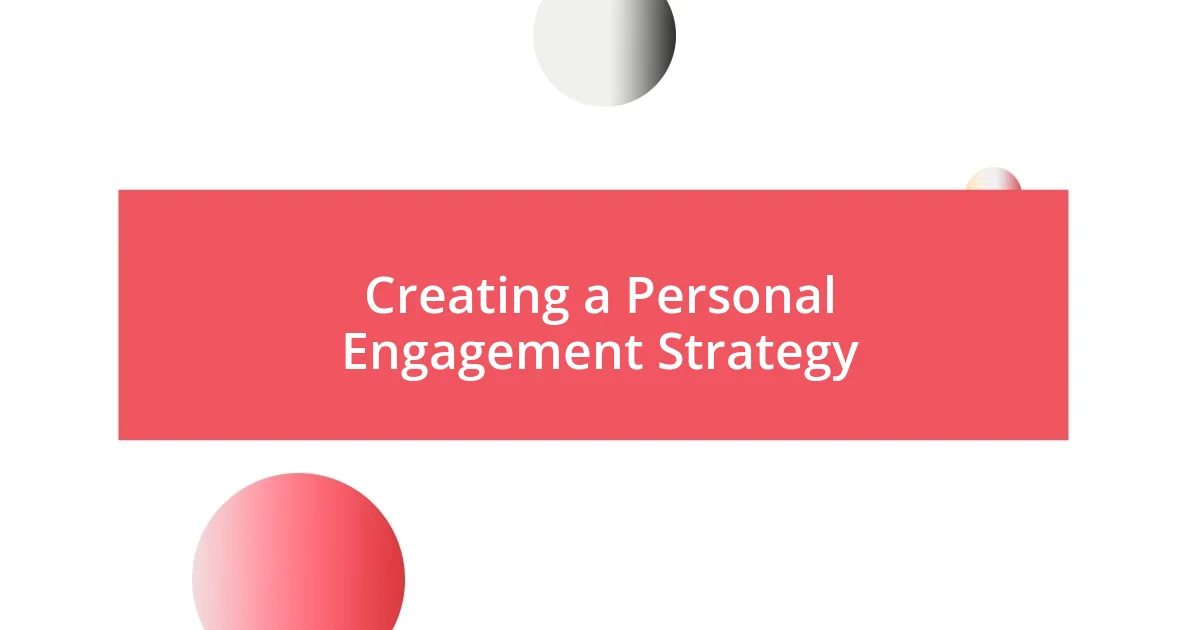
Creating a Personal Engagement Strategy
Creating a personal engagement strategy is essential for making the most of online platforms. I discovered this firsthand during a virtual conference where I set specific goals for what I wanted to learn. By planning my participation, I not only stayed focused but also contributed more meaningfully in discussions. Have you ever felt overwhelmed by information overload? I learned that having a clear strategy allows me to filter out noise and hone in on what truly matters.
A crucial aspect of my engagement strategy involves setting aside dedicated time for interaction. I remember when I first started participating in online forums. I was unsure if I could find the time among my busy schedule. However, once I allocated specific time blocks, it transformed my experience. It wasn’t just about being ‘present’; it became about cultivating quality interactions. This approach ultimately makes connectedness feel less like a chore and more like a regular, fulfilling part of my routine.
Another vital component is reflecting on my experiences after participation. After engaging in an online discussion, I often take a moment to jot down what resonated with me or what I learned. I recall a particularly enlightening session where the insights shared sparked my interest in a whole new topic. By documenting these reflections, I keep the conversation alive in my mind. Have you thought about how reviewing your experiences could enhance future participation? For me, this practice tightens my connection to the online community and deepens my personal learning journey.
| Element | Description |
|---|---|
| Goals | Define clear objectives for your online participation. |
| Time Management | Schedule regular blocks of time for engaging online. |
| Reflection | After engaging, note down insights and thoughts for future reference. |
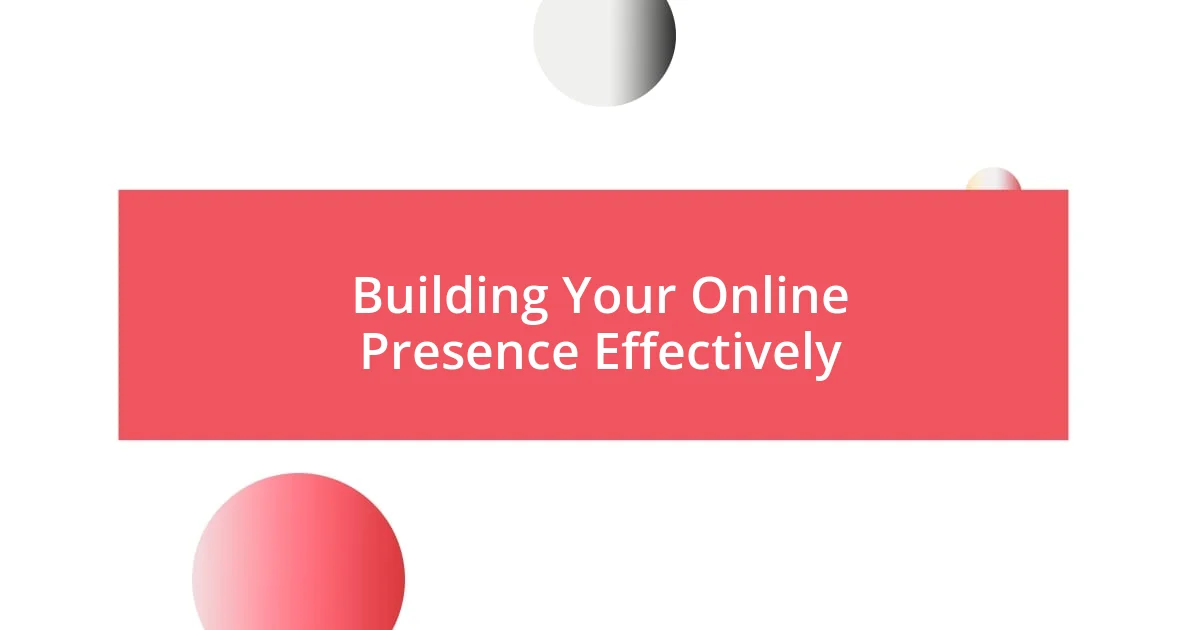
Building Your Online Presence Effectively
Building your online presence effectively hinges on cultivating a genuine and approachable persona. I’ve learned that authenticity resonates with people. During my early days of participating in webinars, I struggled with projecting the “perfect” image. It dawned on me that by simply being myself—sharing my quirks and insights—I attracted like-minded individuals who appreciated my realness. Have you noticed how those casual exchanges often lead to the most meaningful connections?
Consistency plays a pivotal role in shaping your online presence as well. I remember committing to post regularly on social media, whether it was sharing insights from industry articles or snippets from my daily life. This consistency not only kept my audience engaged but also allowed others to anticipate my content, making it easier to forge lasting relationships. How often do you engage with your audience? I find that when I’m consistent, it amplifies my reach and encourages interaction from those around me.
Embracing feedback from your online community can also enhance your presence immensely. After a presentation, I’d often receive comments that revealed perspectives I hadn’t considered. Initially, I was hesitant, thinking criticism was just about pointing out flaws. However, I realized that constructive feedback could be a goldmine for growth. Have you utilized feedback as a tool to refine your online presence? For me, it transformed not just how I connected but also how I evolved in my digital interactions.
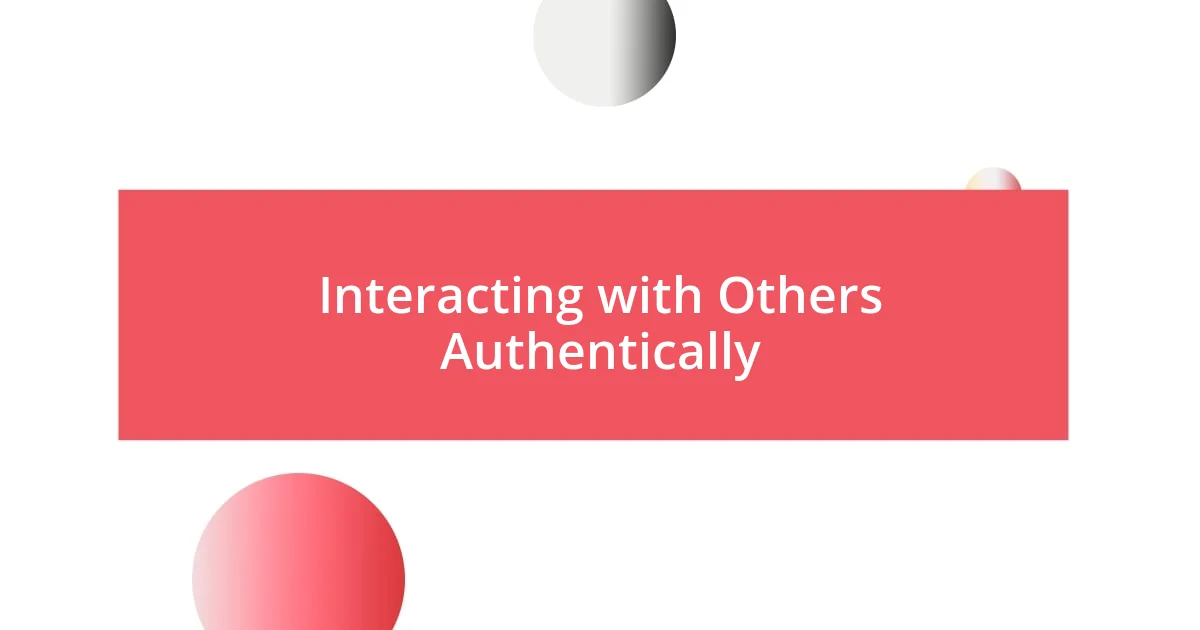
Interacting with Others Authentically
Engaging authentically with others online requires a genuine approach that reflects who you really are. I remember a time when I hesitated to share my thoughts in a forum because I feared being judged. But once I opened up and shared my true feelings about a topic, I was met with unexpected support. It reminded me that vulnerability often paves the way for deeper connections. Have you ever experienced that moment when being real with someone shifted the entire conversation?
Listening actively is another key element of authentic interaction. I recall participating in a lively discussion where I made a conscious effort to really absorb what others were saying. By responding thoughtfully instead of jumping in with my own agenda, I discovered more about different perspectives. This enriched not just the dialogue but also my understanding of the topic. How often do you find yourself truly listening versus waiting to speak? I think those moments of genuine curiosity can profoundly enhance our online interactions.
Lastly, it’s essential to follow up on meaningful conversations. I’ve started reaching out to individuals with whom I’ve shared engaging exchanges, often simply to check in or continue our discussion. This has fostered a sense of community and shown that I genuinely value their thoughts and contributions. Have you tried nurturing these connections beyond the initial interaction? For me, it’s like planting seeds that blossom into lasting relationships, and it enhances my online experience significantly.
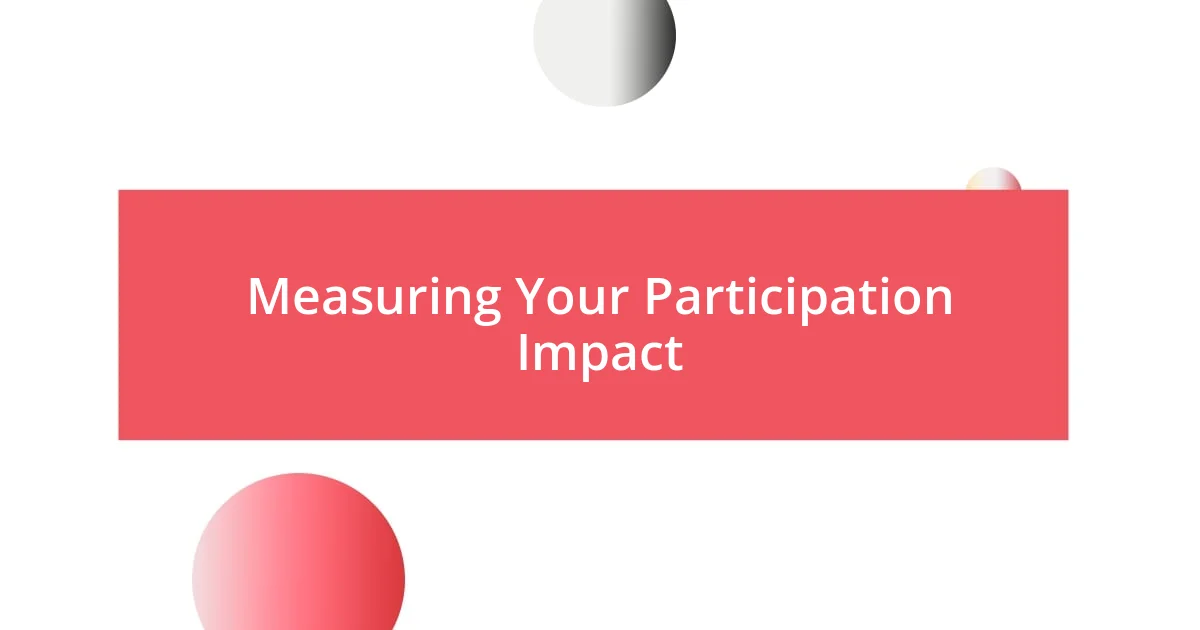
Measuring Your Participation Impact
Measuring the impact of your online participation is essential, yet I find it often overlooked. When I began tracking my online interactions, I was amazed to see how each comment and share contributed to my overall reach. For instance, keeping a simple spreadsheet of engagement metrics helped me identify which topics resonated most with my audience. Have you ever thought about how your online contributions shape your presence?
Feedback loops are another powerful way to assess your participation. I once conducted a short survey after a series of online workshops to gather insights from attendees. The results were eye-opening—participants highlighted aspects I hadn’t even considered, like my pacing and the types of resources they valued. This not only refined my approach but also made me feel more connected to my audience. How do you currently seek feedback on your online contributions?
Lastly, I believe reflecting on personal stories is crucial for measuring your participation impact. For instance, after sharing my journey on a virtual panel, I received numerous messages from fellow participants who found inspiration in my experiences. This showed me that my stories weren’t just words; they elicited emotions and spurred action. How do you evaluate whether your interactions leave a lasting impression? For me, those heartfelt responses served as a reassuring reminder that my voice matters in the digital realm.
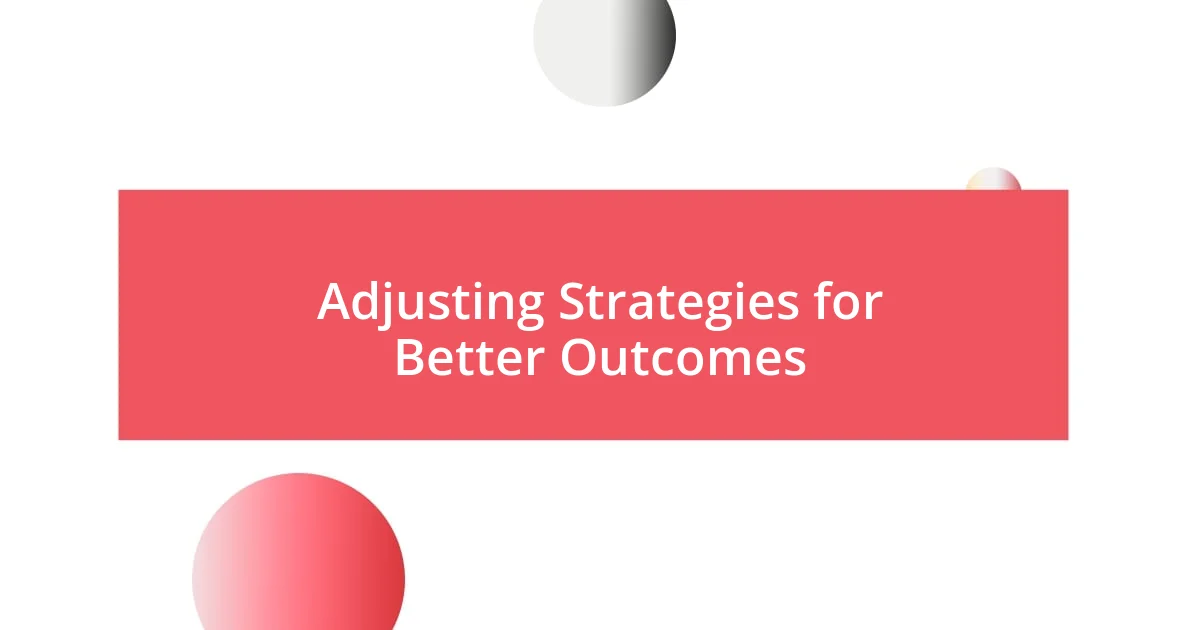
Adjusting Strategies for Better Outcomes
As I’ve navigated the online space, I’ve learned that adapting my strategies based on the context can lead to more impactful interactions. For example, during a recent online seminar, I switched up my approach by tailoring my questions to what I felt the audience needed more insight on. The shift in strategy not only sparked lively discussions but also encouraged others to share their thoughts more freely. Have you ever noticed how adjusting your tone can change the entire atmosphere of a conversation?
Experimenting with different engagement techniques has also proven beneficial. After realizing that my usual enthusiastic style wasn’t resonating in a professional group, I decided to adopt a more analytical stance. This shift not only made the discussions more meaningful but also attracted individuals who appreciated a deeper dive into our topics. Have you ever found that a slight tweak in your approach can unlock new levels of engagement? I certainly did, and it surprised me how receptive everyone became when I aligned my strategy with their expectations.
Moreover, I pay attention to the feedback and adjust on the fly. One time, after sharing an idea in a collaborative online project, I noticed some puzzled responses. Instead of pushing my perspective further, I paused and asked clarifying questions. This not only cleared up misunderstandings but also created space for others to share their insights, leading to a richer outcome. Isn’t it fascinating how being flexible and responsive can transform an interaction? For me, it has truly enhanced the quality of my online experiences.



